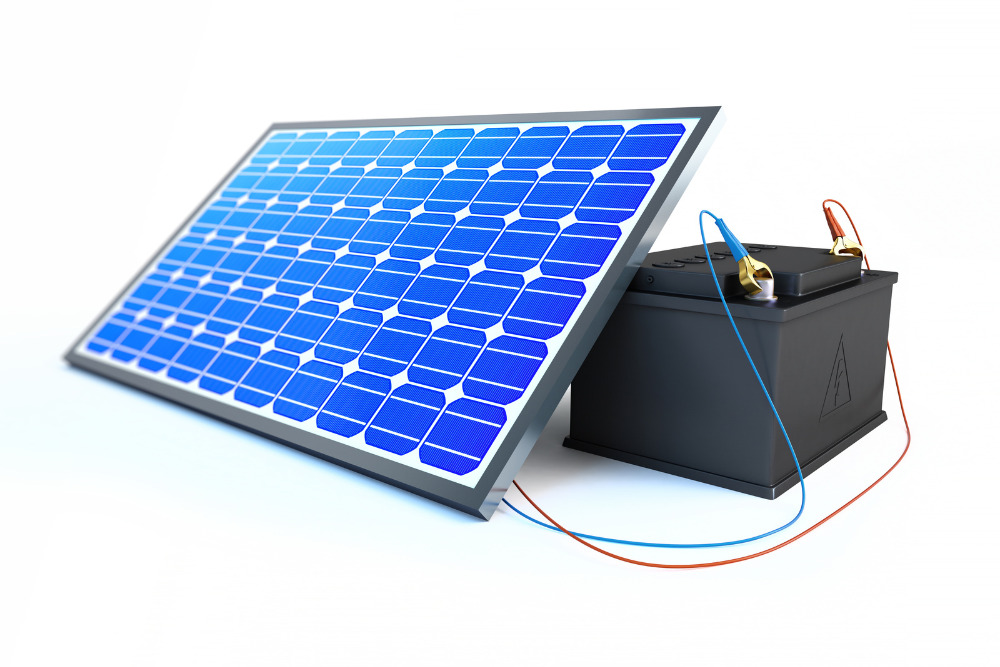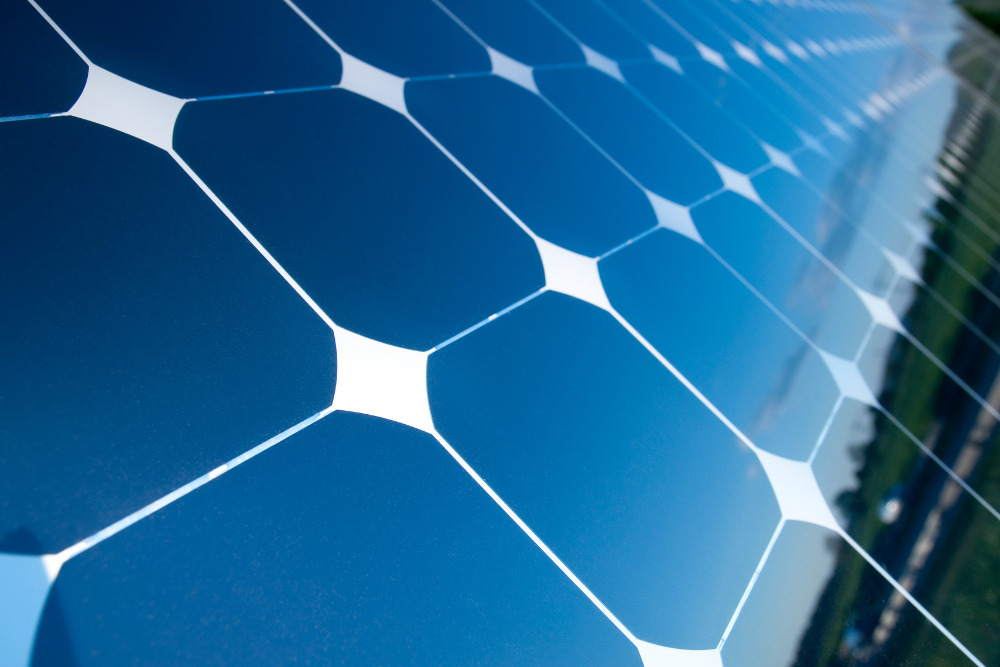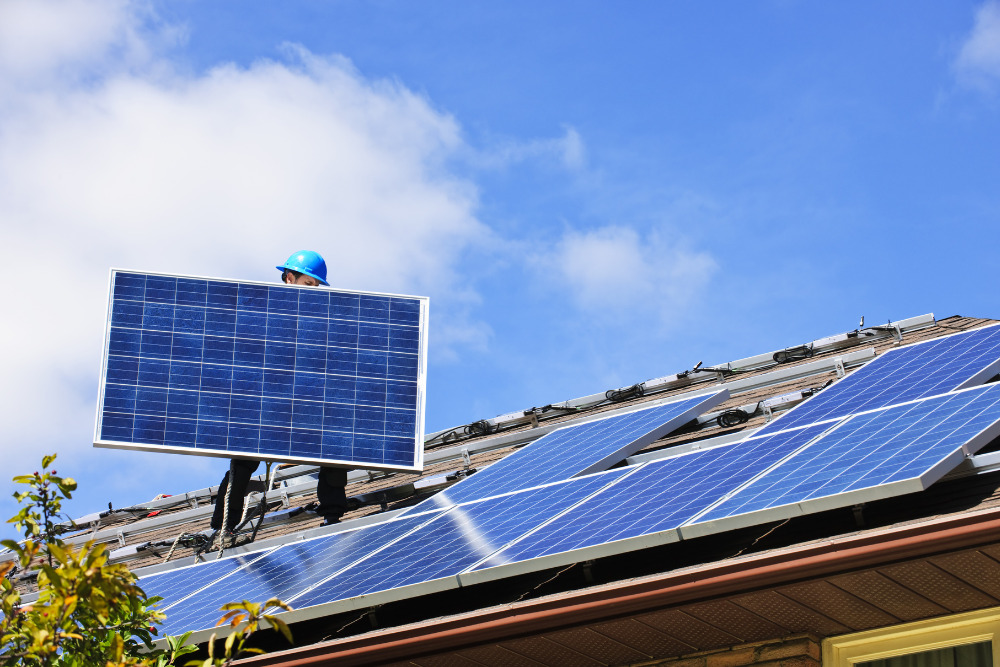
A standard residential solar panel has 60 solar cells and weighs about 40 pounds, or 2.8 pounds per square foot. The total weight may vary depending on the manufacturer, materials, mounting hardware, and roof type.
The weight of a solar panel depends on the panel size. Out of the three standard solar panel sizes (60-cell, 72-cell, and 96-cell), the average weight can vary from 40 to about 70 pounds, with some being a bit lighter or heavier than the averages below:
- 60-cell panels: 40-42 pounds
- 72-cell panels: 48-50 pounds
- 96-cell panels: 70-72 pounds
Solar panel manufacturer. The weight of an average 60-cell solar panel varies by manufacturer. For example, SunPower, which is the manufacturer of some of the best solar panels, has some 60-cell panels that weigh as little as 33 pounds, while Canadian Solar goes up to 51 pounds.
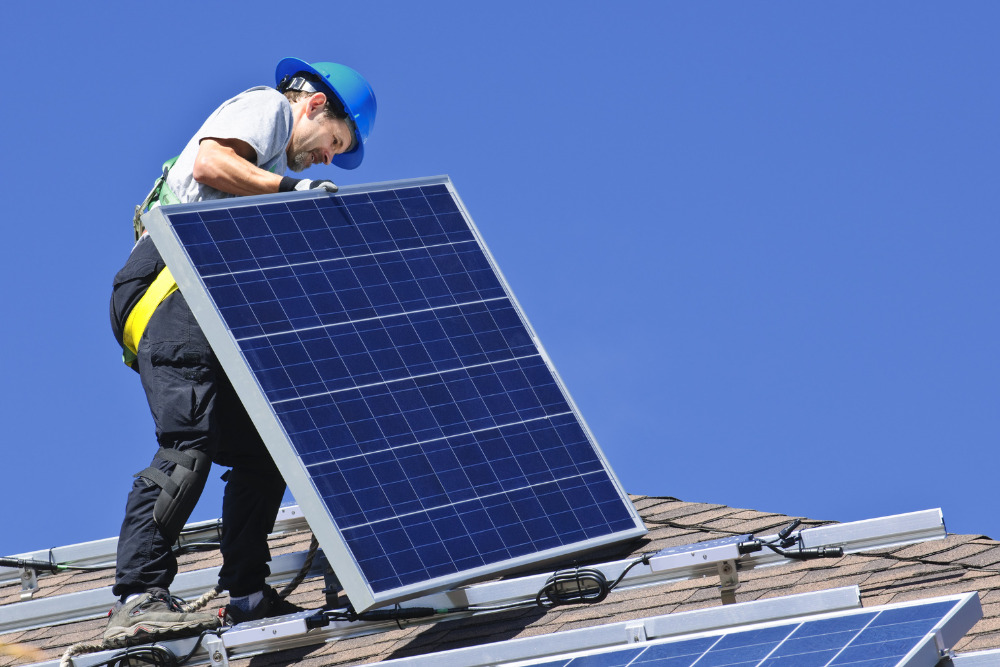
What Affects Solar Panel Weight?
The variances in weight are due to several factors, including:
Solar panel system type. There are several types of solar panels made from different materials. Polycrystalline panels are lighter than monocrystalline panels. Among the alternatives, photovoltaic or thin-film panels are lighter than concentrator panels. Most homeowners choose between monocrystalline or polycrystalline, depending on their budget.
How Much Do Solar Panels Weigh Per Square Foot?
An average solar panel weighs 40 pounds, which is approximately 2.8 pounds per square foot. This can range from 2-5 pounds per square foot based on several factors.
Other factors that contribute to the additional weight of solar panels include:
Mounting equipment. Installing residential panels involves adding mounting hardware, such as racking, rails, and clamps.
Roof type. The average 2.8lb weight per square foot is based on solar panel installation on a pitched or sloping roof. A flat roof requires elevating and tilting the panels since there is no natural slope. The installation process involves a ballasted racking system, which adds extra weight for an average of around 5 pounds per square foot.
Can Solar Panels Be Too Heavy For A House?
Rooftop solar arrays cannot be too heavy unless there is something wrong with the roof.
If you’re worried about whether your roof can support the weight of the panels, consult a structural engineer or architect. A professional solar installation company can also inspect the roof and give you further advice. You may need to do a roof restoration or replacement before installing photovoltaic panels if the roof is old or in poor condition.
Once your home’s roof is renewed and in good condition, the panels will not be too heavy. They may even provide additional roof support by adding evenly distributed weight to it.
What Size Solar Panels Do You Need For Your Home?
Unless you have a very large house, most residential solar installations use standard 60-cell panels. The question is, how many panels do you need?
To determine the size of solar panels needed for your home, calculate your annual electricity consumption by looking at your utility bills. For the average American household, the annual energy usage is 10,632 kilowatt-hours (kWh). Then, use an online solar calculator to find out the optimal panel number and size that will generate enough renewable energy to meet your needs.
Factors that will affect solar panel size include:
- The available roof surface
- Roof orientation
- Sun exposure
- Solar power efficiency
Comparing monocrystalline and polycrystalline solar panels, monocrystalline panels are more efficient overall. Having a higher wattage output means you likely won’t need as many panels.
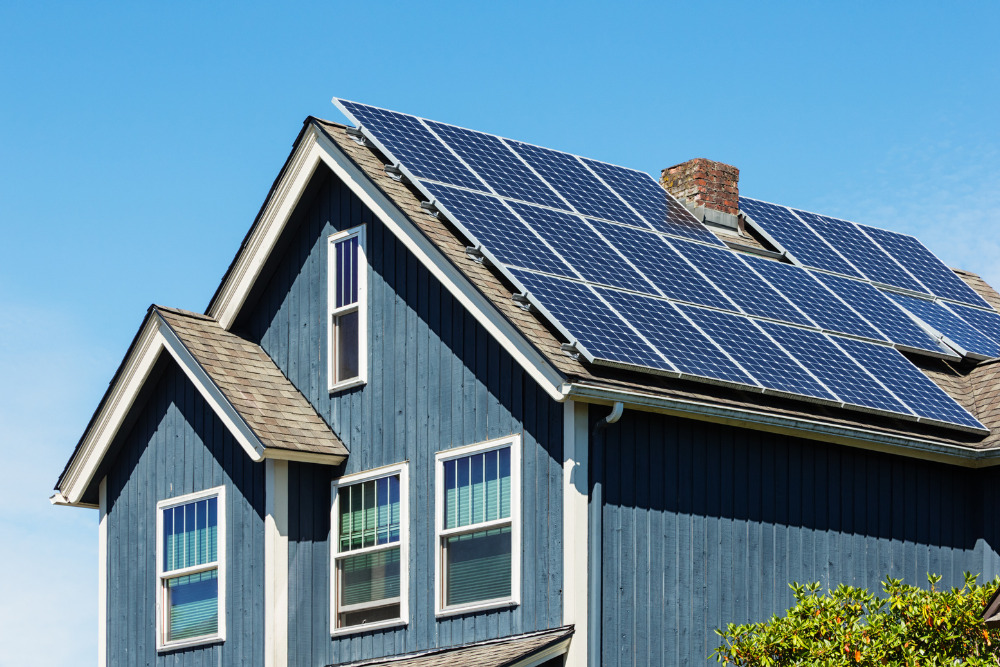
How Much Roof Area Is Needed To Install Solar Panels?
The required roof space varies depending on your energy needs and the panel size, as well as the orientation and shading. The standard practice is to install a kilowatt of solar panels per 100 square feet of a shade-free roof.
Use a rooftop area calculation formula to determine how much space you’ll need. Multiply the area needed for one panel by the total number of solar panels, and you’ll get the result in square feet. Keep in mind this is an estimate, not counting the necessary cleaning and maintenance space or possibly unusable rooftop space.
